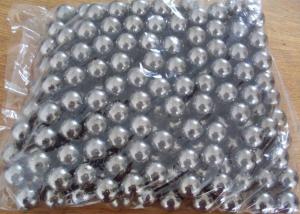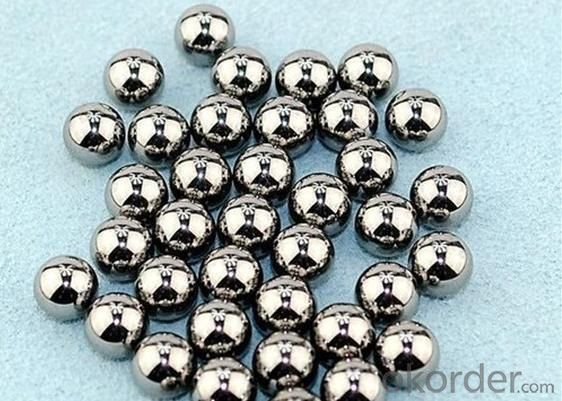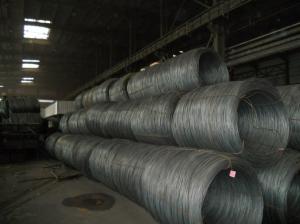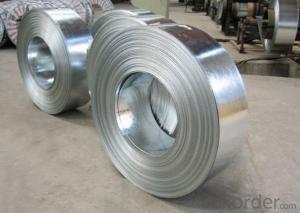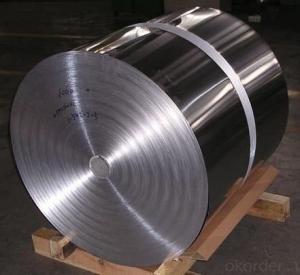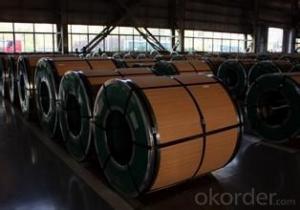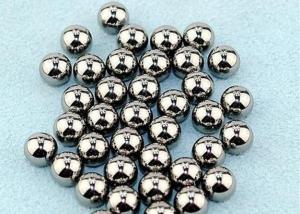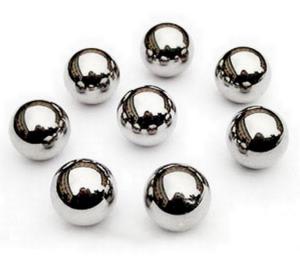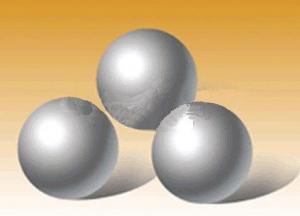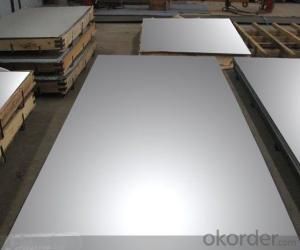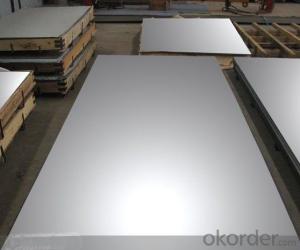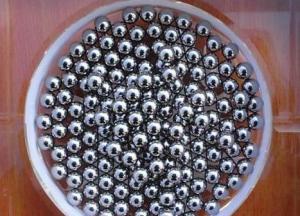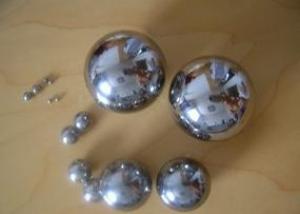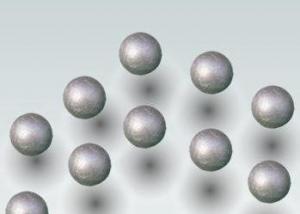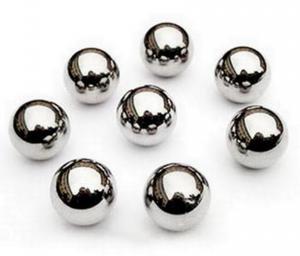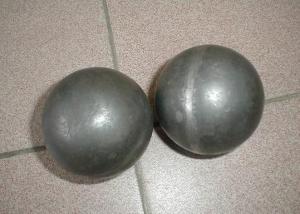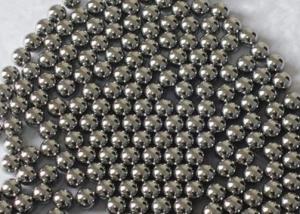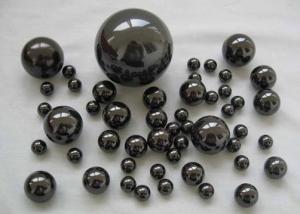Stainless Steel Ball-AISI304, 316L, 420C, 430, 440C
- Loading Port:
- Tianjin Port
- Payment Terms:
- TT or LC
- Min Order Qty:
- 5 Tons pc
- Supply Capability:
- 500 Tons Per Month pc/month
OKorder Service Pledge
OKorder Financial Service
You Might Also Like
Main Products Of 304 Stainless Steel Ball-AISI304, 316L, 420C, 430, 440C:
1. Material: AISI304, 316L, 420C, 430, 440C
2. Steel ball, with material AISI 1008-1086.
3. Chrome steel ball,with material: AISI52100
4. Flying saucer steel ball
5. Precision casting, including auto parts, machine parts, hardware handles, etc.
Character Of 304 Stainless Steel Ball-AISI304, 316L, 420C, 430, 440C:
1.The Grade of our products is from G10 to G1000
2.The dimension is from 0.5 mm to 25.4 mm.
3.The products from us are widely used in several industries, such as hardware, sliders, ball bearing lead screw, wheels, toys, bicycles, bearings, trust bearings pulleys, chemical industries, etc.
Detail Specification Of 304 Stainless Steel Ball-AISI304, 316L, 420C, 430, 440C:
Item | SS304,316L,420C,440C Stainless steel ball |
Category | Stainless Steel Ball |
Material | AISI 420 430 440 SS304 316L |
Size | 0.5mm--25.4mm, 1/4",3/16",5/32",1/8",7/32",5/16",7/8",1" |
Grade | G100-G3000 |
Hardness ( HRC) | HRC58-65 |
Application | Bicycle, bearing, pulley, slide, handcraft, shelf, luggage, hardware, grinding media |
Standard | GB/T-308-2002, GB/T1148-93 |
Matched Standard | DIN, JIS, ASME |
Certification | ISO |
Packing | Oily packing in pouch packing,plastic/tin box packing 1, 25kg/carton with steel pallet packing 2,25kg/carton without steel pallet packing 3,10kg/box then in wooden case packing 4,250kg/ steel drum packing or according to customers' requirement |
Place of original | Shandong province, China |
Delivery | Within 30 days or confirmed while placing order |
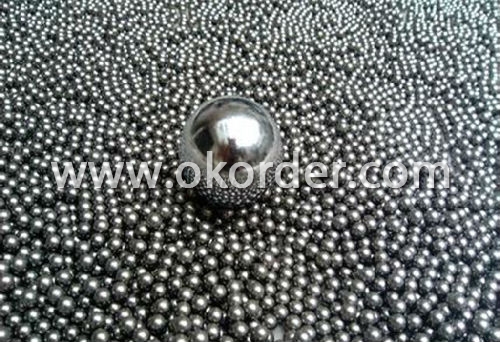
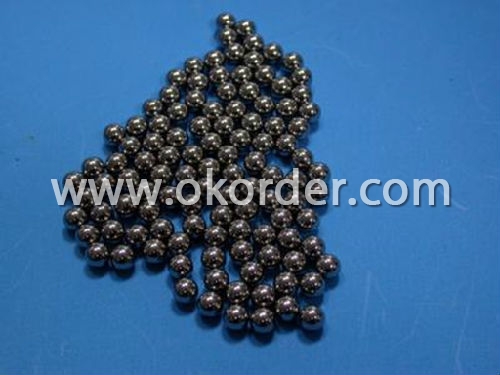
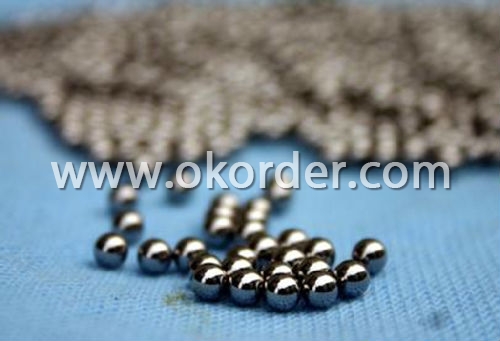
- Q: Are stainless steel balls used in chemical reactors?
- Yes, stainless steel balls are commonly used in chemical reactors. They are resistant to corrosion and provide high durability, making them suitable for various chemical processes and reactions within reactors.
- Q: Can stainless steel balls be used in laboratory centrifuges?
- Certainly! Laboratory centrifuges can utilize stainless steel balls for various purposes. This is because stainless steel is a widely employed material in laboratory equipment due to its impressive durability, resistance to corrosion, and inert nature. In the case of centrifuges, stainless steel balls are typically employed as a means of counterbalancing. Their purpose is to evenly distribute weight, ensuring stability during high-speed rotations. Furthermore, these steel balls find application in sample preparation and mixing procedures within centrifuges. It is essential, however, to verify the compatibility and suitability of stainless steel balls with the laboratory centrifuge's manufacturer or supplier. This is because certain centrifuges may have specific requirements or limitations regarding the materials that can be employed.
- Q: How do stainless steel balls compare to aluminum balls in terms of weight?
- Stainless steel balls are generally heavier than aluminum balls.
- Q: Are stainless steel balls used in fuel cells?
- Fuel cells commonly utilize stainless steel balls. These electrochemical devices transform the chemical energy of a fuel, like hydrogen, into electricity via an oxidation-reduction reaction. In fuel cells, stainless steel balls often serve as a catalyst support material. They possess a large surface area that facilitates the catalytic reactions, enabling the conversion of fuel to electricity. The selection of stainless steel balls stems from their durability, resistance to corrosion, and ability to withstand the challenging conditions within fuel cells. Moreover, their high thermal conductivity aids in dissipating the heat generated during fuel cell operation. All in all, the presence of stainless steel balls significantly contributes to the improved performance and extended lifespan of fuel cells.
- Q: Are stainless steel balls used in ball valves?
- Indeed, it is customary to utilize stainless steel balls in ball valves. Given its exceptional resistance to corrosion, robustness, and durability, stainless steel is widely preferred for ball valves. The manufacturing of stainless steel balls usually adheres to stringent tolerances, enabling them to endure elevated pressure and temperature circumstances. Such attributes render stainless steel balls appropriate for a multitude of applications, encompassing ball valves employed in diverse industries like oil and gas, chemical processing, water treatment, and numerous others.
- Q: Can stainless steel balls be magnetized?
- No, stainless steel balls cannot be magnetized. Stainless steel is a non-magnetic material, meaning it does not possess the inherent properties to attract or generate a magnetic field. While stainless steel does contain iron, the alloying elements such as chromium and nickel prevent the formation of a magnetic structure. Therefore, stainless steel balls are not capable of being magnetized or attracting magnetic materials.
- Q: Can stainless steel balls be used in air freshener dispensers?
- Yes, stainless steel balls can be used in air freshener dispensers. Stainless steel is a durable and corrosion-resistant material, making it suitable for use in a variety of applications. The balls can help distribute the fragrance evenly by rolling or rotating inside the dispenser, ensuring a consistent release of the air freshener. Additionally, stainless steel balls are easy to clean and maintain, making them a practical choice for air freshener dispensers.
- Q: Are stainless steel balls resistant to fatigue?
- Yes, stainless steel balls are resistant to fatigue due to their high strength and durability. They are specifically designed to withstand repeated stress and strain without experiencing fatigue failure.
- Q: Can stainless steel balls be used in centrifugal pumps?
- Centrifugal pumps can indeed utilize stainless steel balls. The utilization of stainless steel in centrifugal pump applications is prevalent owing to its remarkable attributes, such as its exceptional robustness, resistance to corrosion, and long-lasting nature. When it comes to applications involving aggressive or corrosive fluids, stainless steel balls are particularly advantageous as they can endure the chemical surroundings without undergoing degradation or corrosion. Moreover, due to their low magnetic permeability, stainless steel balls are well-suited for industries that encounter magnetic concerns. In conclusion, stainless steel balls serve as a dependable and efficient option for employment in centrifugal pumps.
- Q: Can stainless steel balls be used in automotive suspensions?
- Automotive suspensions can utilize stainless steel balls. These balls possess qualities such as strength, durability, and corrosion resistance that make them suitable for demanding applications like supporting vehicle weight, absorbing shocks, and maintaining stability and control. Various suspension components, including ball joints, tie rod ends, and control arms, can benefit from the use of stainless steel balls. Stainless steel balls have advantages over other materials commonly used in automotive suspensions. Their corrosion resistance ensures longevity and minimizes the risk of rust or wear-related failures. The high strength of stainless steel enables the balls to withstand heavy loads and impacts without deformation or breakage. Their excellent hardness and wear resistance minimize friction and enhance the overall performance and lifespan of the suspension system. Moreover, stainless steel balls are commonly employed in racing and high-performance vehicles. They excel in extreme conditions, providing precise control and responsiveness. These balls can endure high temperatures, vibrations, and intense forces, making them ideal for the demanding nature of automotive suspensions. However, it is crucial to consider the specific design and requirements of the suspension system when using stainless steel balls. Factors such as load capacity, vehicle weight, and intended use must be taken into account to determine the suitability of stainless steel balls for a particular suspension application. In summary, stainless steel balls are a viable option for automotive suspensions due to their strength, durability, corrosion resistance, and superior performance characteristics. By incorporating these balls, vehicles can benefit from a more reliable, long-lasting, and efficient suspension system.
1. Manufacturer Overview
| Location | Guangzhou,China |
| Year Established | 2001 |
| Annual Output Value | Above US$0.5 Million |
| Main Markets | Southeast Asia, Europe |
| Company Certifications | ISO 9001:2008; |
2. Manufacturer Certificates
| a) Certification Name | |
| Range | |
| Reference | |
| Validity Period |
3. Manufacturer Capability
| a) Trade Capacity | |
| Nearest Port | Shanghai |
| Export Percentage | 30% |
| No.of Employees in Trade Department | 10 People |
| Language Spoken: | English;Chinese |
| b) Factory Information | |
| Factory Size: | Above 30,000 square meters |
| No. of Production Lines | Above 7 |
| Contract Manufacturing | OEM Service Offered;Design Service Offered |
| Product Price Range | Average |
Send your message to us
Stainless Steel Ball-AISI304, 316L, 420C, 430, 440C
- Loading Port:
- Tianjin Port
- Payment Terms:
- TT or LC
- Min Order Qty:
- 5 Tons pc
- Supply Capability:
- 500 Tons Per Month pc/month
OKorder Service Pledge
OKorder Financial Service
Similar products
Hot products
Hot Searches
Related keywords

